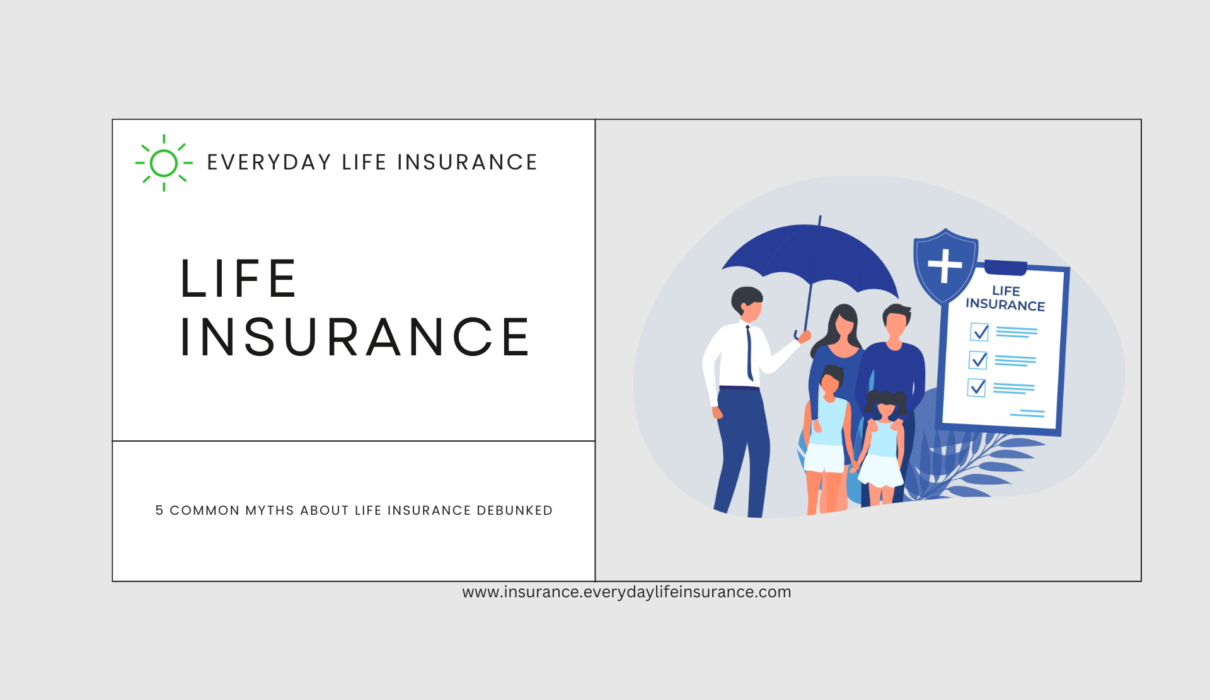Life insurance is a crucial financial tool that provides protection and security for your loved ones in the event of your passing. However, misconceptions about life insurance abound, preventing many from fully understanding its importance. Let’s debunk five common myths surrounding life insurance to shed light on its true value:
Myth 1: Life Insurance Is Only for Older Individuals
Reality: Life insurance is not age-specific. While it’s true that older individuals may have a greater need for life insurance due to financial obligations and dependents, younger individuals can also benefit. In fact, purchasing life insurance at a younger age often means lower premiums because of better health and lower risk factors. Starting early can provide long-term financial security and lock in lower rates.
Myth 2: Only Breadwinners Need Life Insurance
Reality: Life insurance is not solely for primary breadwinners. Even if you don’t contribute financially to your family, your absence could create significant financial strain. Stay-at-home parents, for instance, provide valuable services that would incur costs if replaced, such as childcare and household management. Additionally, life insurance can cover funeral expenses and outstanding debts, easing the burden on surviving family members.
Myth 3: Employer-Sponsored Life Insurance Is Sufficient
Reality: While employer-sponsored life insurance is a valuable benefit, it often provides limited coverage that may not meet your family’s needs adequately. Coverage typically ends if you leave the job, and the amount may not be enough to replace your income or cover all expenses. Supplementing with a personal life insurance policy ensures continuous coverage and customizable benefits tailored to your specific circumstances.
Myth 4: Life Insurance Is Too Expensive
Reality: Life insurance premiums vary depending on factors such as age, health, coverage amount, and type of policy. While some policies may seem expensive, there are affordable options available to suit different budgets. Term life insurance, for example, offers temporary coverage at lower premiums compared to permanent life insurance. By assessing your needs and shopping around, you can find a policy that provides adequate coverage without breaking the bank.
Myth 5: Single Individuals Don’t Need Life Insurance
Reality: Even if you’re single with no dependents, life insurance can still be beneficial. It can cover funeral expenses, outstanding debts, and medical bills, preventing financial burdens for your family or beneficiaries. Additionally, purchasing life insurance while you’re young and healthy ensures lower premiums and insurability, providing a financial safety net for future obligations or dependents.
In conclusion, life insurance is a valuable tool for individuals of all ages and circumstances. By debunking these common myths, we can better understand the importance of securing adequate coverage to protect our loved ones and ensure financial stability in the face of life’s uncertainties. Consulting with a financial advisor can help you navigate the options and choose the right policy for your needs.

